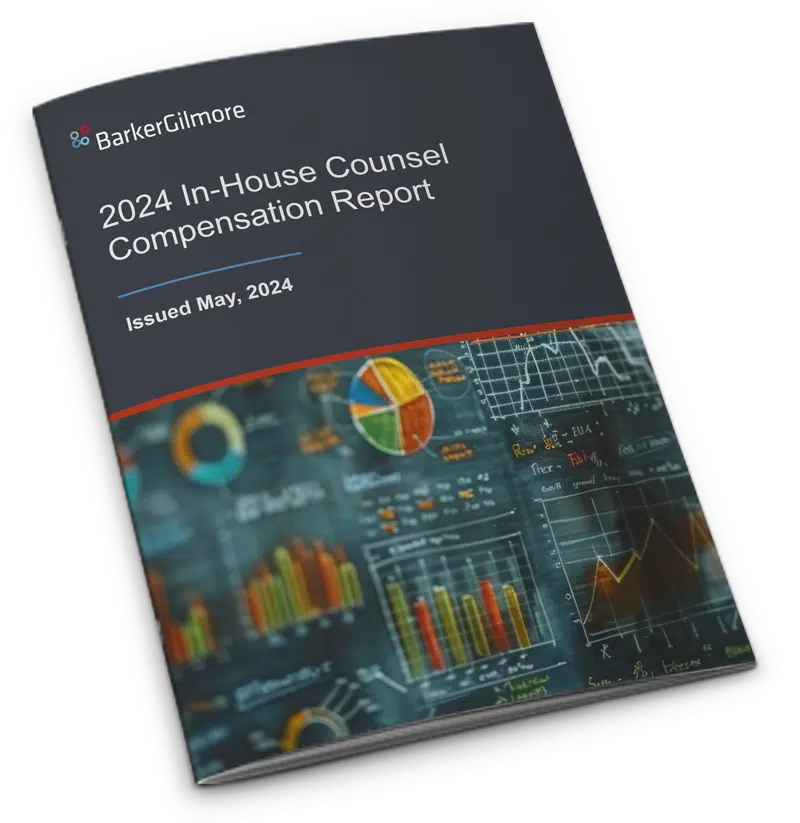An Association of Corporate Counsel survey released Tuesday showed that women in America may have finally turned the corner in their quest for parity in attaining jobs as general counsel. And some experts believe the trend will continue.
Though women currently hold only 30 percent of GC jobs in Fortune 500 companies, the survey said 43 percent of new general counsel in that select group from mid-2017 to mid-2018 were female.
The study, 2019 General Counsel Landscape, was conducted by the Association of Corporate Counsel and LawGeex, a legal technology firm specializing in automated contract review.
John Gilmore, co-founder and managing partner at GC and compliance officer recruiting and consulting firm BarkerGilmore, said he is seeing a similar trend at his firm, where 41 percent of all its placements in the past year were women.
“While companies may not be specifically asking for females, they are putting significant pressure on us to bring a diverse slate of candidates to the table, where everyone meets the same high bar.”
Gilmore said no CEO or board will hire a woman just for the sake of diversity. “The pressure is to bring candidates of equal ability,” he explained.
The problem for recruiters, he said, is that most companies want someone who is already a “sitting general counsel” at another company.
“I am seeing an increase in the number of women [in-house counsel] and minorities being groomed for the top job,” Gilmore said. “General counsel are doing a great job of preparing and teeing up in-house counsel for general counsel jobs.”
But the problem is that CEOs don’t want to hire good “number twos,” he said. They want to hire someone who is already a general counsel.
And women appear to be disadvantaged in gaining the in-house promotions to general counsel. Although they comprise nearly half of in-house counsel overall according to the ACC’s Veta Richardson, survey results show that of all general counsel who were promoted to their jobs internally in the survey’s time period, a whopping 79 percent were male.
The ACC survey said, “Women GCs appear to have more success in gaining a GC position by joining a new company, rather than by being promoted within the same company.”
The report added that the low female promotion rate to GC “reflects either a lack of talent in the pipeline, or a continuing failure to recognize and promote women candidates.” Gilmore, for one, does not think there is a lack talent in the pipeline.
Another sobering statistic in the survey showed that the 43 percent female GC hiring last year did not hold true for 30 high-profile U.S. companies whose general counsel retired between 2017 and 2018. The companies hired only eight women and 22 men to replace those 30 GCs.
So if women can’t seem to get promoted to GC internally, and CEOS won’t hire them unless they are already sitting general counsel, then women in-house counsel face a major obstacle in their careers.
The ACC report quoted Diana Toman, senior vice president and general counsel at Compass Minerals, on the impact that these factors are having on women’s careers and pay:
“Women often have to be proven in that GC role before they are entertained as a candidate against a male,” the report quoted Toman.
She said of women who are in-house counsel, “I think they are more often willing to accept a small company to prove themselves and then move up, and that impacts the gender pay equity,” she continued.
A gender pay gap continued to persist in the latest survey: male GCs were paid an average of 39 percent more than females, the study said.
Still, Gilmore said the percentage of women who are hired as general counsel annually in the ACC survey could easily keep rising. “But for that to happen,” he noted, “you need either women being promoted from within, or CEOs who are willing to consider candidates who are well prepared, but are not sitting general counsel.”
Eliza Stoker, an executive director for the in-house practice group at legal recruiter Major, Lindsey & Africa, also said that she expects increased female hiring to continue, at least for a while.
Stoker said that companies are “more frank and candid than they used to be” about specifying when they want to hire a woman or person of color. She sees two factors driving the hiring trend: one “is a genuine desire for diversity, including women—because not all companies define diversity as including women,” she said.
And the second, Stoker said, “is a much broader, fear-based drive related to the #MeToo movement. My gut tells me that the fear is a much stronger driver than the altruistic desire for a diverse work force.” Although #MeToo started as a movement against sexual abuse, especially in the workplace, it has grown to include women’s empowerment in general.
She said she believes an increasing share of GC hires will go to women “as long as the #MeToo movement has the power to strike fear into employers.”
Stoker added, “Hopefully we reach some point of critical mass where we have a good number of women general counsel, and there no longer needs to be fear or altruistic drivers.”
Connect with a legal recruiting advisor
* indicates required fields







